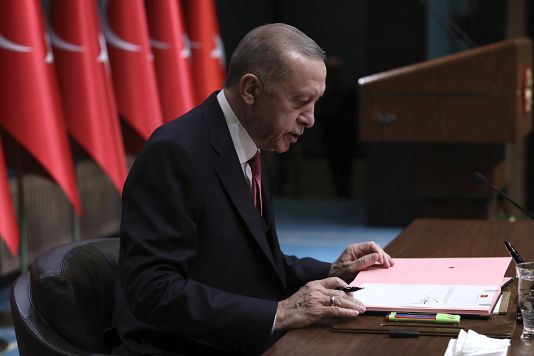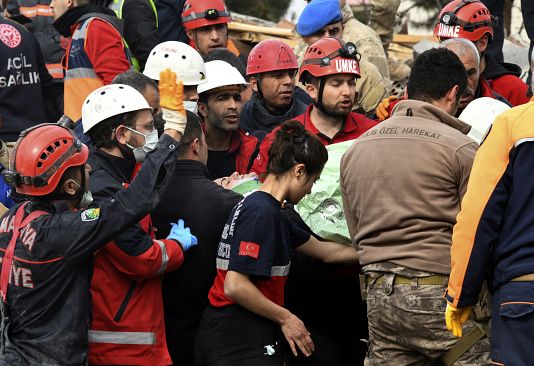Turkish President Recep Tayyip Erdoğan announces elections will take place on May 14th. He said that "we want to turn May 14 into a good race that will erase the traces of February 6 destruction"
Turkish President Recep Tayyip Erdoğan - who is seeking to extend his two decades in power - has formally set the country’s parliamentary and presidential elections for 14 May.
The vote will come a month earlier than scheduled, despite massive disruption and loss of life due to last month’s devastating earthquake.
“We need to implement a program that will heal the wounds of unprecedented destruction at an unprecedented speed", stated Erdoğan.
The election could be the country’s most significant poll in decades. It will determine whether the country takes a more democratic path or continues on the increasingly authoritarian course set by the strongman politician.
Erdoğan has ruled over Turkey since 2003, first as prime minister and then as president since 2014 but this year’s elections could be his most challenging.
Earlier this week, Turkey’s disparate opposition parties, including nationalists, Islamists and conservatives, ended months of uncertainty that had frustrated supporters of the anti-Erdoğan bloc and nominated a joint candidate to run against Erdoğan.
The six opposition parties, known as the Nation Alliance, have united behind Kemal Kilicdaroglu, the 74-year-old leader of the centre-left, secularist Republican People’s Party, or CHP. They have pledged to roll back the erosion of rights and freedoms.
Turkey’s second-largest opposition party, the pro-Kurdish Peoples’ Democratic Party, has signalled it is prepared to talk to the opposition alliance about extending its support to Kılıçdaroğlu.
The country is struggling with a troubled economy, soaring inflation and the aftermath of the powerful earthquake that killed more than 46,000 people and left hundreds of thousands across 11 Turkish provinces sheltering in tents or temporary accommodation.
Many have criticized his government’s response to the earthquake and accuse it of failing to prepare the earthquake-prone country for a disaster in waiting.
Experts have pointed at lax enforcement of building codes as a major reason why the earthquake was so deadly.
The Supreme Electoral Council will now determine the electoral calendar. A runoff presidential election would be held on May 28 if none of the candidates secures more than 50% of the vote.
The presidential and parliamentary elections were scheduled to be held on June 18, but the government moved them forward to avoid coinciding with the Hajj pilgrimage, a university entrance exam and the start of the summer vacation season.













